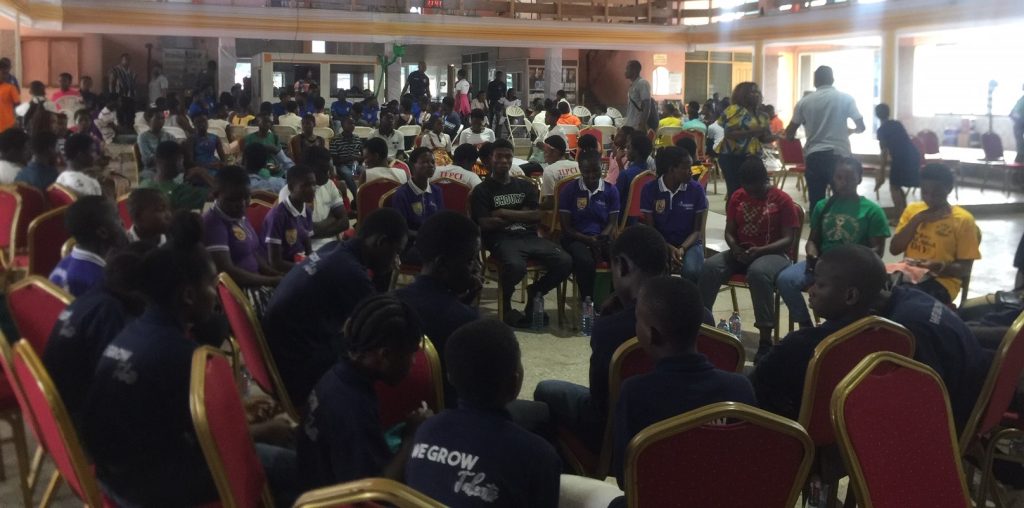By Mercy Arthur
Tema. Aug. 14, GNA – The Tema-Ashaiman Cluster of Compassion International Ghana, a Christian international non-government organisation, has commemorated International Youth Day.
The global theme for the day was “Green Skills for Youth Towards a Sustainable World” at Tema Community One.”
As part of the celebration 200 beneficiaries of Compassion International’s 14 projects within the Tema-Ashaiman Cluster were selected to represent the various projects.
Madam Akosua Fosua Offei, Forest Range Manager at the Forestry Commission told the Ghana News Agency in an interview in Tema, that the United Nations Educational Scientific and Cultural Organisation (UNESCO) described “green skills as the knowledge, abilities, values, and attitudes that enabled the effective use of green technologies and processes needed to live in development and support a sustainable and resource-efficient society.”
She reiterated that green skills were classified under two categories: technical green skills, which relate to specific sectors that directly contributed to environmental sustainability.
The other is transversal green skills, which are general skills that cut across the various industries and job roles by integrating sustainability principles into different contexts, which include environmental management policy analysis, project management, green finance, and investment, among others.
Madam Offei identified some key areas of green skills as renewable energy, environmental conservation, waste management, sustainable construction, and sustainable agriculture.

She said green skills help in the reduction of pollution even as economic development advances, conserve and protect the biodiversity of natural resources.
Endangered species and ecosystems, preserve the planet’s natural heritage, promote re-use, reduction, and recycling, facilitate the rapid growth of growing green sectors, and guarantee the implementation of environmental policy and regulations, among others.
She also said that green skills foster economic growth by establishing new green jobs by creating new industries and market opportunities as demand for renewable energy, eco-friendly products, and sustainable practice increases,
green jobs would continue to expand and provide a stable source of employment.
Madam Offei, however, noted that the role of youth in building a sustainable world as the Sustainable Development Goals (SDG8) contextualised calls for decent work and economic growth for young people.
She said unemployment and poor job quality had proven to be persistent and draining, and its impacts on environmental movements, and the unique perspective of youth on environmental issues and the recognition of the potential of youth in driving sustainable developments.
According to her, green jobs are classified under different types that include energy efficiency usage, right from buildings and appliances to optimising manufacturing processes, focusing on sustainable renewable energy sources like wind, solar, sewage gas, landfill gas, hydroelectric power, and developing sustainable agriculture and food systems practises.
“Inadequate green talent skills or jobs hampering the full transition to a green world, for instance, in green building projects; insufficient provision for skills development and efficient coordination results in skill shortages; and a lack of appropriate systems and formal education are the challenges in green skills”, she stated.
She said the strategies to overcome the challenges involved addressing socio-economic barriers to youth participation, unemployment, discrimination, health issues, social support, and income, developing complementary quantitative methods to identify the specific occupational needs of a greening economy, and creating a network of support for youth-led initiatives.
Madam Judith Oye Ankomah, Partnership Facilitator for Tema-Ashiaman Cluster, in charge of the 14 projects stated that the youth faced some challenges in society, including economic situations, a lack of skills training, and negative use of the internet, among others.
She urged the youth to engage in green skills such as agriculture, which included farming and rearing livestock or poultry, and called on the sensitization of youth to involve themselves in entrepreneurial skills as well to help attain the sustainable development goals of the country and reduce unemployment rates.
GNA